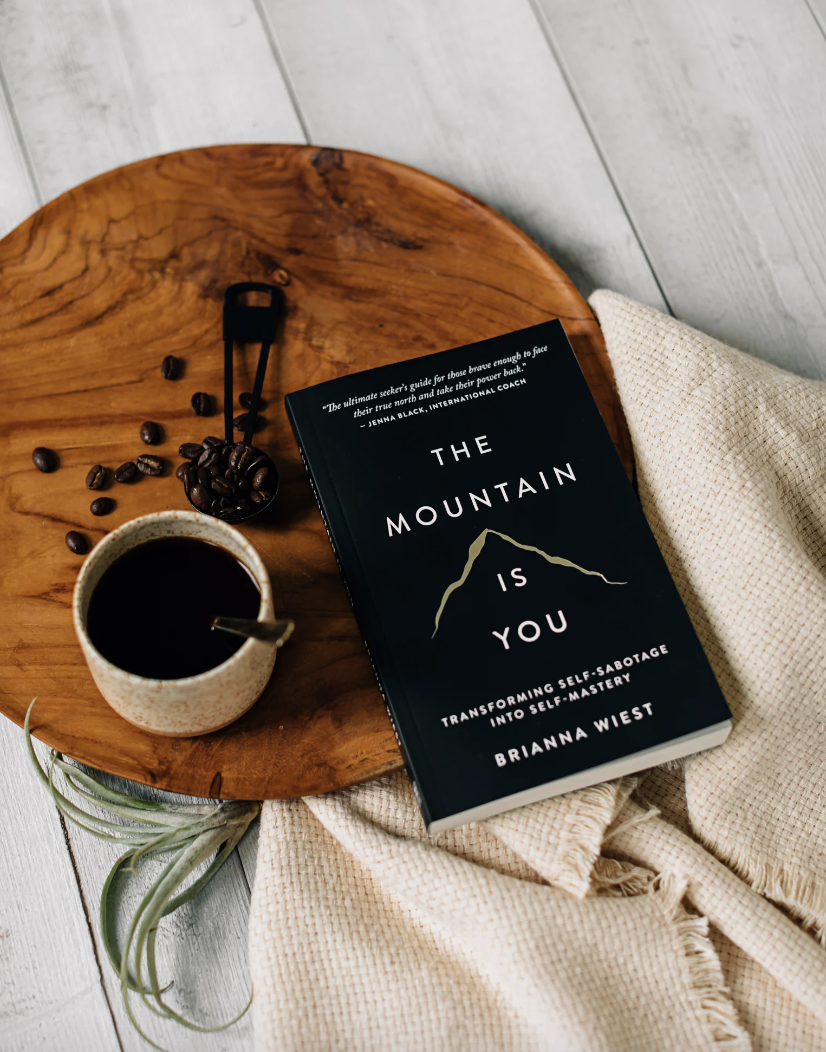
5 Profound Things I Learned From ‘The Mountain Is You’ By Brianna Wiest
While self-sabotage is a phenomenon I am deeply familiar with, it is a mechanism I never fully understood. I couldn’t figure out why I always got in my own way, tripped myself up, and ultimately never arrived at the places I wanted to be.
Then I read The Mountain Is You: Transforming Self-Sabotage Into Self-Mastery, a book by best-selling author Brianna Wiest. In The Mountain Is You, Wiest expertly breaks down self-sabotage, explaining its function and why we struggle to stop engaging in behaviors that only leave us stuck, unhappy, and empty. Wiest also details how to stop self-sabotage in its tracks and ultimately work with ourselves, not against ourselves.
The Mountain Is You has changed my life for the better. But mostly, it helped me take my power back. Here are five of the most profound things I learned from The Mountain Is You.
1. Self-sabotage is a means of getting an unmet need fulfilled (albeit in a maladaptive way).
While it’s often believed that self-sabotage is the result of trying to punish ourselves, this is actually not the case at all. In The Mountain Is You, Wiest describes self-sabotage as a coping mechanism, a means of getting a need fulfilled, usually a need we aren’t fully aware we even have. An example Wiest gives is sabotaging relationships because what we really want is to know ourselves (but also don’t want to be alone).
2. “Your new life is going to cost you your old one.”
Wiest explains that many people avoid doing necessary internal work because they realize that “[…]if they heal themselves, their lives will change–sometimes drastically.”
This could mean losing relationships and friends. This may mean you could become less liked and understood. It may mean floundering for a while until you find your north star. “It doesn’t matter,” insists Wiest. “The people who are meant for you are going to meet you on the other side. You’re going to build a new comfort zone around the things that actually move you forward. Instead of being liked, you’re going to be loved. Instead of being understood, you’re going to be seen.”
3. Comfort is the driving force of human behavior.
Human beings seek what they know best because it is what is the most comfortable and therefore safe. As Wiest writes, “Human beings are guided by comfort. They stay close to what feels familiar and reject what doesn’t, even if it’s objectively better for them.”
This is one of the big reasons we engage in self-sabotaging behaviors. Well, that is until self-sabotage becomes the less comfortable option and we have no choice but to face ourselves and our lives.
4. In order to stop self-sabotaging, you need to uncover how it serves you and why.
The self-sabotaging behaviors we engage in are symptoms. You need to get to the root of the behavior to dismantle the pattern and ultimately stop the self-sabotaging altogether. “You cannot get rid of the coping mechanisms and think you’ve solved the problem,” explains Wiest. You must find healthier means of meeting your needs. You must know what your needs are in the first place.
5. The only person who can save you from your own madness is yourself.
And finally, The Mountain Is You taught me the one person in my way is myself and that I am also the only person who can save me from me only madness. And so, I can continue to resist the change I know is necessary, I can continue to dig in my heels and continue screwing up my life because I’m too afraid to live it. Or, alternatively, I can step out of my own way. I can decide that I want better for myself because I deserve better, especially from myself. I choose the latter.
The Mountain Is You gave me the insights, tools, and wisdom I desperately needed to start the next step in my healing journey. It opened my eyes to my own bullshit and made me realize the power I always had (I just needed to learn to harness it correctly).

